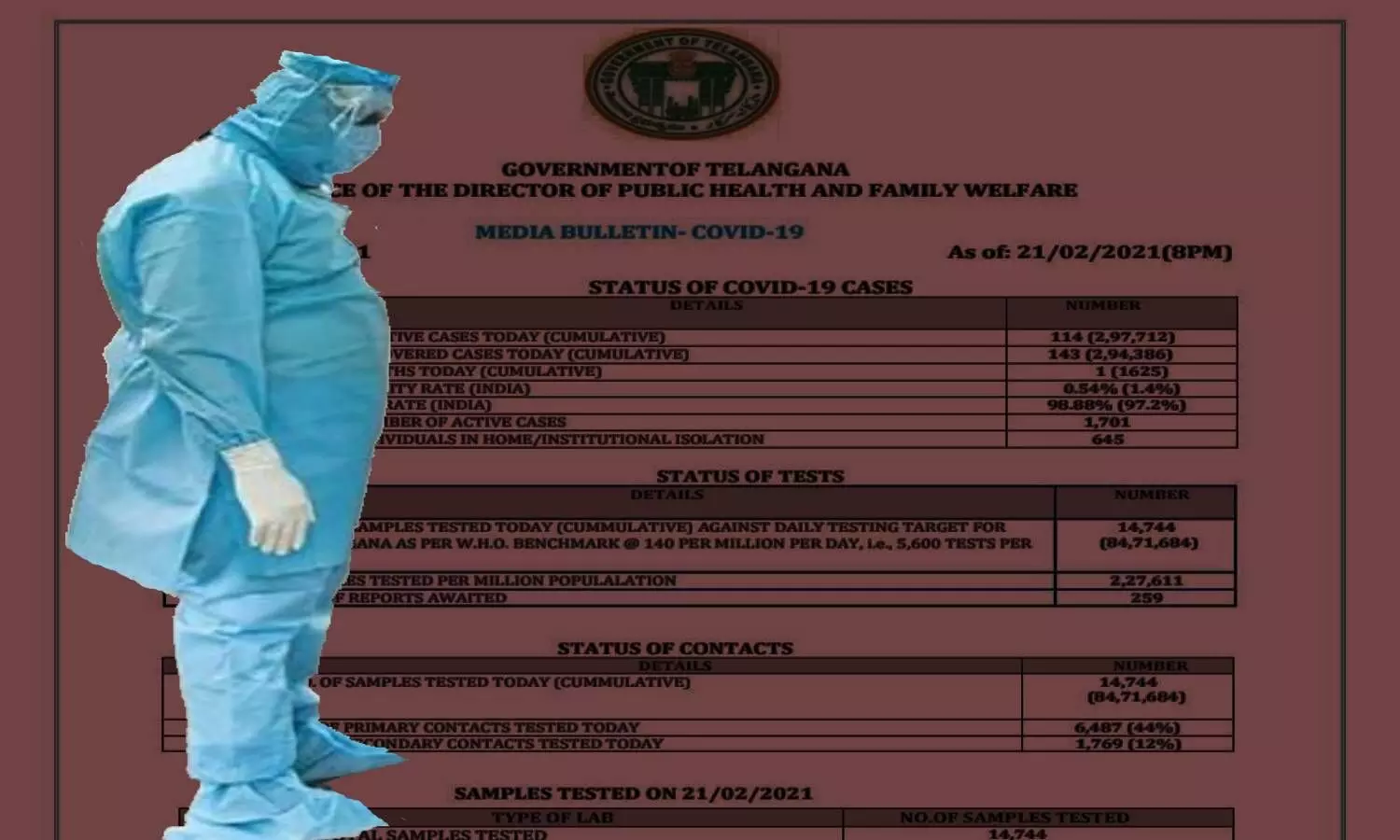No COVID-19 daily bulletin in Telangana, health dept to focus on vaccination
Due to the low number of cases in the state and giving priority to the vaccination process, the department has decided to release the bulletin on a weekly basis.
By Sumit Jha
Hyderabad: The Telangana Health Department has decided not issue the COVID-19 bulletin on a daily basis. Instead, the bulletin will now come on a weekly basis every Monday.
Speaking to NewsMeter, Dr G Srinivasa Rao, Director of Public Health and Family Welfare, Telangana said that due to the low number of cases in the state and giving priority to the vaccination process, the department has decided to release the bulletin on a weekly basis.
"Now that the cases have come down and we are focusing on the vaccination programme, the department is busy with so many activities. I don't see much significance in releasing the COVID-19 bulletin daily now. The bulletin consists of almost 40 pages, so every day around two to three members of my team are only working on that and are unable to do any other work. Our priority should be the vaccination programme now," said Dr G Srinivasa Rao.
The department has said that in the future if the cases surge they will release the bulletin on daily basis again. "The COVID-19 positivity rate and active cases have come down drastically. If there is a surge again we will definitely release the bulletin daily. People should continue to be cautious about the spread of the virus. People are coming out to the streets without wearing masks, which is not right," the director said.
Meanwhile, NITI Aayog member Dr VK Paul on Tuesday during a press conference said that two variants of COVID-19 (N440K, E484) have been detected in Maharashtra, Kerala and Telangana but the surge in cases can't be linked to these variants. Recently, Karnataka has asked passengers travelling from Maharashtra to have an RT-PCR test with them while coming to the state.
The director of public health, Telangana, also said that there is no such situation in the state. "We know how to tackle the COVID-19. It is going to be a year and we have tackled it properly in our state. We have continuously performed our jobs as we are supposed to do. Every state has its own way of working. In the past year, we have learned through experience and we will continue to learn accordingly," he said.
CCMB scientists raise red flag over novel variants of the SARS-CoV-2
Scientists at the city-based Centre for Cellular and Molecular Biology (CCMB) have found that few novel variants of the SARS-CoV-2 are spreading more in certain states, especially in southern India.
According to scientists, the best way to control potential damage is to exercise extensive genome surveillance and take measures to prevent the spread of new variants as and when detected. While vaccines are helpful, social vaccines such as usage of masks, hand hygiene, and physical distancing are the most effective weapons we have against this pandemic.